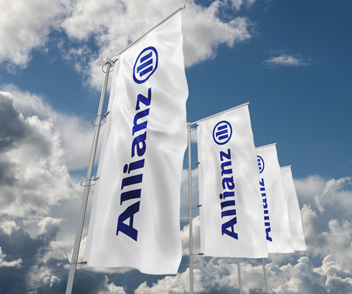- The effects of globalization, digitalization and technological disruption pose fundamental challenges to many businesses
- The emergence of industry 4.0 could result in higher risk of large-scale losses
- Corporates operating in Africa have a particular role in embracing and responding to new technologies
“The effects of globalization, digitalization and technological disruption pose fundamental challenges to many industries,” says Berger who was born in Rwanda. “The emergence of Internet of Things (IoT), smart factories, data analytics, artificial intelligence to name but a few could result in higher risk of large-scale losses due to increasing interconnectivity.”
Businesses based in Africa have a particular role in embracing and responding to new technologies compared to mature markets as there is an urgent and important need to grow their enterprises and economies rapidly. “They need to move with speed through the 3rd industrial revolution into the digital era, but need adequate policies and infrastructure to manage this transformation,” he says. “Businesses operating in the retail insurance sector have been particularly good at using mobile, digital and social media technology to provide simple and convenient products and sales channels and this is gradually increasing in the business to business arena as well."
"For example, future risk assessments in Africa by risk engineers will occur through new channels such as mobile insurance drones rather than on-site visits thus presenting the key to the future of business insurance through developing digital capabilities that address superior customer experience."

New risk transfer solutions required
Berger states that cyber vulnerability is another risk which companies are very concerned about. Attacks by hackers are becoming more target-oriented, lasting for longer and can trigger a continuous penetration. Cyber activity is at the top of long-term risks in Africa and around the globe.
Digital interconnectedness risks such as business interruption through non-malicious activity, physical damage following a non-malicous IT error, loss of intellectual property, and failure of utility services are risks that companies would like to insure against, but there is currently only limited insurance solution available in the market. “Insurers need to work with clients to consider the changing loss pattern and new emerging risks,” explains Berger. “There must be a review of insurance solutions and risk mitigation practices to reflect these new risk management realities. Refining existing and developing new risk services will be necessary by businesses and insurers.”
Embrace new technologies
Press Contacts
About Allianz Global Corporate & Specialty
Worldwide, AGCS operates with its own teams in 34 countries and through the Allianz Group network and partners in over 210 countries and territories, employing almost 4,700 people of 70 nationalities. AGCS provides insurance solutions to more than three quarters of the Fortune Global 500 companies, writing a total of €7.4 billion gross premium worldwide in 2017.
AGCS SE is rated AA by Standard & Poor’s and A+ by A.M. Best.

















